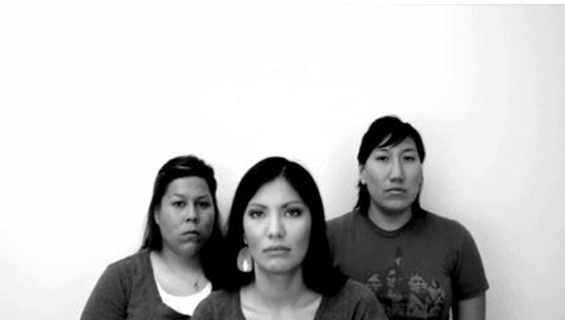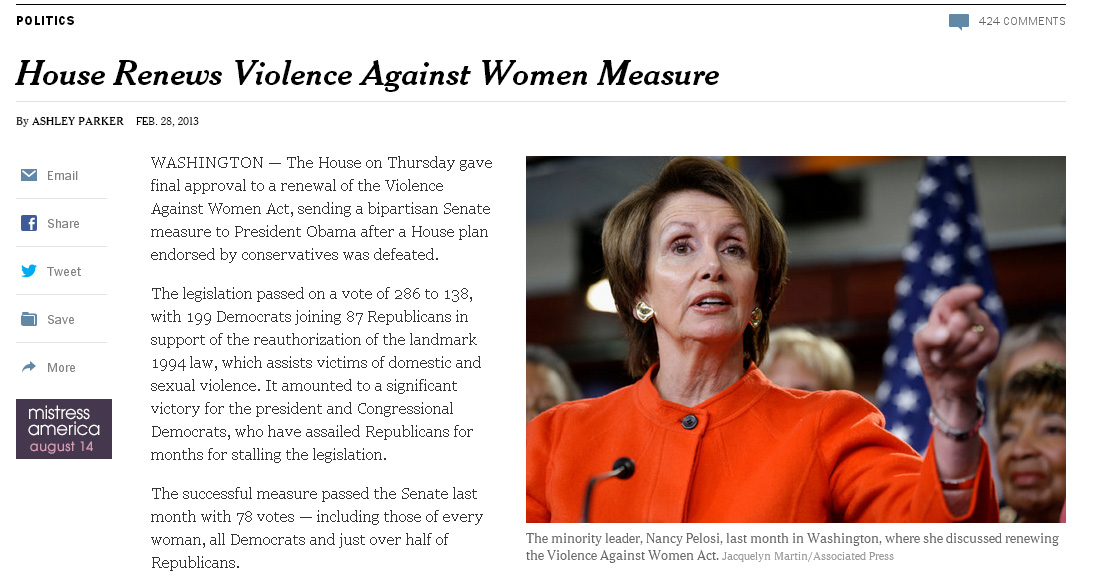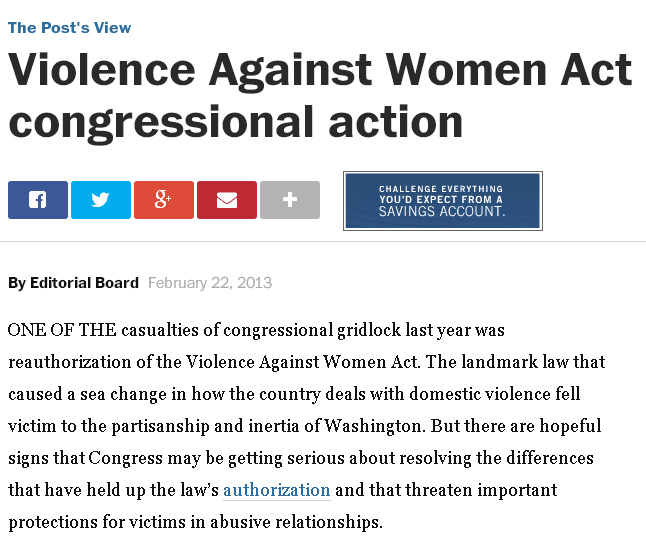VAWA Reintroduced -- A High Priority for 113th Congress
Jan. 23, 2013 -- Identical bills for VAWA have been introduced in both chambers of Congress. Tell Congress to pass an inclusive VAWA Now! Keep their phones ringing!
Jan. 23, 2013 -- Identical bills for VAWA have been introduced in both chambers of Congress. Tell Congress to pass an inclusive VAWA Now! Keep their phones ringing!
Native women in the United States are suffering horrendous rates of domestic and sexual violence—violence considered one of the most pervasive human rights violations in the United States.
Recent Report by U.N. Special Rapporteur on the Rights of Indigenous Peoples says legislation protecting Native women should be an “immediate priority” in U.S.
September 5, 2012 | Center releases a new video urging lawmakers to reauthorize a stronger version of the Violence Against Women Act.
Too many of my Native sisters don't expect justice. Instead, they talk with their daughters about how they will "survive" their rape. They've accepted the horrific statistic as a part of life.
ACT NOW! Tell Congress that all women need protection, regardless of their race, tribal residency status, national origin, or sexuality.
On March 6, 2012, the NCAI Task Force on Violence Against Women, including board members of the National Indigenous Women’s Resource Center and attorneys for the Indian Law Resource Center, met with Senator Daniel Akaka, Chairman of the Senate Committee on Indian Affairs, to thank him for sponsoring the SAVE Native Women Act, S. 1763, and co-sponsoring the Violence Against Women Reauthorization Act, S. 1925. Both bills contain significant tribal and life-saving provisions critical for restoring safety to Native women.
by Jana Walker - Despite some strides in addressing violence against Native women, there is no doubt United States law falls far short of even the minimum human rights standards set forth in the UN Declaration on the Right of Indigenous Peoples. Considering the United States’ trust responsibility to Indian nations, coupled with the standards in the Declaration, it is imperative that the U.S. act now to end the epidemic of violence against Native women.
Senator Akaka introduces S.1763, legislation that would give tribes more power to prosecute violence against Native women.
What actions you can take today to educate yourself and others about the terrible problem of Violence Against Women in the U.S.
IACHR to hold hearing on violence against Native women in the U.S. Tune-in to the live webcast on Oct. 25, 2011 at 10:15 a.m., EST
Senate Indian Affairs Committee asking "Have We Improved Public Safety and Justice Throughout Indian Country?"
A summary of July 14, 2011, Senate Committee on Indian Affairs Oversight Hearing on protecting Native women. To read testimony from the witnesses at the hearing or to watch a replay of the hearing online, visit http://indian.senate.gov/.
Tribal leaders and Native women’s advocates and advocacy groups are encouraged to submit written testimony to the U.S. Senate Committee on Indian Affairs by July 28, 2011.
Commentary by Terri Henry | February 2, 2011 It was with great honor that my nation, the Eastern Band of Cherokee Indians, hosted the United Nations Special Rapporteur on Violence Against Women, Ms. Rashida Manjoo.
A United Nations expert on women’s human rights is investigating why Native women face the highest rates of sexual and physical assault of any group in the United States.
On July 30, 2010, President Obama signed the historic Tribal Law and Order Act into law. The Act is an important step towards ending the crisis of violence against Native women currently occurring on tribal lands.
For the first time, the United States will participate in a Universal Periodic Report before the UN Human Rights Council. The Universal Periodic Review (UPR) is a unique process to review the human rights records of all 192 UN member-states every four years. Its ultimate goal is to improve human rights conditions in every country and it is designed to prompt, support, and expand the promotion and protection of human rights on the ground.
Both the UN and Inter-American Human Rights Systems use special procedures to address specific human rights concerns. The appointment of a Special Rapporteur is the most common special procedure used in both systems. In the UN system, the Human Rights Council appoints Special Rapporteurs to collect information on specific topics or countries and receive communications about human rights concerns. Special Rapporteurs are mandated to gather information on and formulate recommendations for the prevention and remedy of violations on human rights. Three UN Special Rapporteurs deal direc
 In the United States, violence against indigenous women has reached unprecedented levels on tribal lands and in Alaska Native villages. More than 4 in 5 American Indian and Alaska Native women have experienced violence, and more than 1 in 2 have experienced sexual violence.
In the United States, violence against indigenous women has reached unprecedented levels on tribal lands and in Alaska Native villages. More than 4 in 5 American Indian and Alaska Native women have experienced violence, and more than 1 in 2 have experienced sexual violence.

Ashley Parker, The New York Times, 2013
